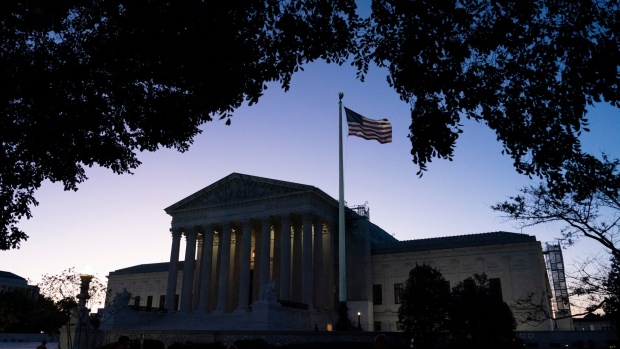Jul 2, 2024
Workplace-Safety Rules Survive as Supreme Court Rejects Appeal
, Bloomberg News

(Bloomberg) -- The US Supreme Court turned away a sweeping attack on federal regulatory power, refusing to weigh an industry-backed appeal that might have cast doubt on hundreds of workplace-safety standards.
The appeal by an Ohio contractor contended that Congress unconstitutionally handed off its legislative responsibilities when it authorized the Occupational Safety and Health Administration to set safety standards in 1970. Justices Neil Gorsuch and Clarence Thomas said they would have granted review.
The appeal had support from business groups, anti-regulation advocates and more than 20 Republican-led states. They were seeking to revive the so-called non-delegation doctrine, a legal theory the Supreme Court last invoked in the 1930s.
The case was part of a multipronged assault on federal regulatory power being pressed at the high court by opponents of big government. The court last week overtuned a 1984 ruling that had given agencies broad latitude to define the reach of their authority by interpreting ambiguous statutes.
Several of the court’s conservatives have indicated in past cases they are interested in revitalizing the non-delegation doctrine. The court has watered down the doctrine in recent decades, saying Congress can delegate its powers as long as it lays out an “intelligible principle” for agencies to follow.
The OSHA case involved Allstates Refractory Contractors LLC, a Waterville, Ohio, company that provides furnace services to the glass, metals and petrochemicals industries. The company in 2019 agreed to pay a $5,967 penalty after an incident in which a catwalk brace fell and injured a worker below.
Two years later, Allstates sued OSHA, seeking to bar the agency from enforcing its so-called permanent workplace safety standards.
The Cincinnati-based 6th US Circuit Court of Appeals rejected the challenge, saying Congress had provided the required intelligible principle for OSHA to follow. Under the 1970 Occupational Health and Safety Act, regulators may act only when “reasonably necessary or appropriate” to improve workplace safety.
In a 2019 opinion for himself and two colleagues, Justice Neil Gorsuch said the use of the “intelligible principle” phrase had been a “misadventure” and called on the court to revisit the subject.
The Biden administration urged the Supreme Court to reject the appeal without a hearing, saying Congress provided meaningful guideposts for OSHA. US Solicitor General Elizabeth Prelogar told the justices the appeal threatened to invalidate standards that protect workers from falling objects, electric shock, asphyxiation, chemical burns, fires and falls.
The case is Allstates Refractory Contractors v. Su, 23-819.
©2024 Bloomberg L.P.








